Google and Samsung continue to bungle the Galaxy Nexus launch

This has gone beyond absurd. It has been almost 3 weeks since Google and Samsung announced the Galaxy Nexus and Android 4.0 Ice Cream Sandwich. Even right after the announcement, despite the exciting products unveiled, we criticized Google for not putting a release window mor specific than "November" in the announcement, and now we're seeing the results of that failure. We are now entering the second week of November, and still all we know for sure is that the device will be released at some point this month.
Those in Europe have a bit better idea of when to expect the Galaxy Nexus based on a rumor that the European rollout will begin on November 17th. This date has been confirmed for the UK, so it seems we can believe that release date, but because we haven't had an official announcement from either Samsung or Google we have no real info. We assume that the rollout of the phone will begin on the 17th, but we don't know which regions will get it first, aside from the UK, nor do we know how long the rollout will take. We can likely assume that the launch regions other than the UK will be France, Germany, and Spain, but beyond that, we just don't know.
The trouble with this strategy is not only in that it makes the release seem sloppy and rushed, even if it may not be, but it breaks down a company's ability to have marketing campaigns and increase user awareness in the extremely busy time leading up to the holiday shopping season. More specifically for Google, it makes it unclear what the point of the Nexus brand is. Until now, the Nexus branding has been a signal that the device is targeted towards developers and early adopters, and not so much for the more casual public. However, given the UI overhaul of Ice Cream Sandwich, and the partnership with Verizon, it seems that Google is aiming for a more mass market appeal for this device. But, because of the vague release window, there isn't enough time to inform that mass market that something special is coming, while all of the attention goes to devices like the Motorola DROID RAZR and the HTC Rezound.
Endless guessing
Then, for those in North America, we have absolutely no idea when to expect the phone, or even what carriers will have the Nexus available. We've seen enough reports to know that the Galaxy Nexus will be available on Verizon, but we don't know about other carriers. There has been neither confirmation nor real denial as to whether or not the Galaxy Nexus will be exclusive on Verizon. We can assume that there will be models that will be compatible with both AT&T and T-Mobile, because we know that models made for various European and Canadian carriers will have the radio bands necessary for those carriers. But, we don't know if users on those carriers will have to settle for paying full price for an unlocked version, or if there will be options to get the Nexus on contract. Similarly, we haven't heard anything about Sprint availability. Sprint had seemed like an inevitability given the increasingly close relationship between the carrier and Google. But, now that Sprint has bet the farm on the iPhone, perhaps Google isn't as wiling to push the Nexus on the carrier.
Aside from the mess with which carriers will have the Galaxy Nexus, we have absolutely no idea when the phone will be made available. Going into the second week of November, the best we can say is that the phone will be available on Verizon after Thanksgiving (November 24th). However, we don't know if that means the phone will launch after Thanksgiving, on Thanksgiving, or before. We have heard rumors placing the US release anywhere from November 10th to the 17th, the 21st, or the 24th.
In the meantime, the competition has been gearing up. The iPhone 4S has been selling like gangbusters, and has been launching in more and more countries. We saw the announcement of the Motorola DROID RAZR the day before the Galaxy Nexus announcement. At that announcement, we were told that there would be a pre-order on October 27th. Then, just a few days ago the RAZR release was announced for November 11th. Last week, we saw the announcement for the HTC Rezound, and at the announcement, the release date was given as November 14th.
Track history
Think what you will of Apple products, Apple as a company, or the constant barrage of Apple rumors, once an Apple product is announced, you know exactly when and where it will be available. The iPhone 4S was announced on October 4th, and we immediately knew when there would be pre-orders and that the release would start on October 14th. Google and Samsung on the other hand have constantly shown that they do not know how to handle product launches. Google web products are in endless beta, which can be perfectly fine, but hurts the opportunity to get word out to more casual users because there is no real release to report. Also, there have been delays with the launch of both the original Nexus One, and the Nexus S. Now, we aren't getting a delay exactly, we're getting nothing at all from Google, aside from the official word is that the Galaxy Nexus will be launched in November. On the other hand, Samsung had the Galaxy S II available around the world starting in May and the rollout still hasn't finished. At one point, there were rumors that the US would never get the GS2. T-Mobile and Sprint finally got their variants, as has AT&T with the newly released Skyrocket. However, as rumors ramp up around the Galaxy S III, it's still unclear if there will be a Galaxy S II variant on Verizon, or if that slot has been given to the Galaxy Nexus.
Given the track record of Google Nexus devices, we never expected there to be a huge marketing campaign, but that doesn't mean that consumers should be kept in the dark until the day the device is launched. A smartphone purchase is not one that most users make on short notice outside of emergencies with a lost or broken phone. This is a purchase that will require either a 2 year contract plus $300, or the unlocked cost which is likely to be about $589. That is a relatively major purchase for most people, especially for those who have held off in upgrading.
The cost of being vague
Google and Samsung showed off great products with the Galaxy Nexus and Android 4.0 Ice Cream Sandwich, and certainly caught the attention of those of us in the media as well as the more hardcore fans, but it seems there is still no interest in reaching a mainstream audience. The Nexus line of devices has always straddled the line as being a device for developers and for early adopters, but not exactly a mainstream device. With Ice Cream Sandwich, Google has pushed the UI of Android to be more consistent and more accessible. The deal to have the Galaxy Nexus made available on Verizon shows that for the first time, a Nexus device would officially be released on one of the big two US carriers, and not just on the also-ran carriers of T-Mobile and Sprint. It seemed like a recipe for stock Android to make a push into a more mainstream audience given the right marketing and launch. But, Google and Samsung are bungling that option through the same lack of specificity that irked us with the Galaxy Nexus announcement.
Without knowing what carriers will have the Nexus available, or what retailers will offer the phone, or even when it will be launched, it is impossible to build a marketing campaign. Without marketing, only the most engaged audience will know that the device even exists, let alone what the release means. There have been plenty of manufacturers guaranteeing that devices will be receiving the Ice Cream Sandwich update, and that it will be happening pretty quickly in some cases. But, most users don't know what that even means, because there is no reference point. There is no reference point, because since the announcement, the Galaxy Nexus has been missing in action.
Google is also missing a big opportunity to inform the public more about the real forces behind fragmentation in the Android ecosystem. Marketing can be used to build awareness for a product, but it also can be used to inform. Google still has a chance to do this, though the window is fading. As we've mentioned before, the Nexus devices have always served 3 purposes: 1) to serve as a reference and development device for developers, 2) to push certain features throughout the Android ecosystem, and 3) to be a pure Android experience for users.
It is the third purpose that is getting lost, because the elite level users don't really need to learn about the benefits of a pure Android experience. Many power users in the Android ecosystem root their devices either for the increased control, or to remove carrier bloatware or manufacturer UI. It is more casual users who don't understand that manufacturer UIs and carrier bloat cause delays in pushing upgrades to devices. The Galaxy Nexus could serve as the reference point for pure Google to many users because it will be made available on Verizon and have the potential to reach many more customers than it has before. Unfortunately, as we said, with no release information there can be no marketing. Right now, the best it seems we can have is for users to wander into a Verizon store and happen to see the Galaxy Nexus when it's released, and hope that the Verizon employees can explain the difference beyond "it has the newest version of the Android OS."
Conclusion
Google and Samsung have had their issues with timely and well planned releases, and Google is just recently learning the value of marketing its own products (which is exceedingly odd for a company that is funded almost completely through serving ads.) There is still time to launch a campaign, especially if the Galaxy Nexus isn't being released until Black Friday weekend, but only if the specific release date is announced very soon, as in within the next few days. But, even so, the Thanksgiving weekend is one of the busiest shopping times of the year, and is extremely competitive. The only way to succeed in that market is to have a presence established through marketing and product availability, of which the Galaxy Nexus has neither.
The worst of this is that we were worried about rumors that Google would rush out the Nexus and Ice Cream Sandwich in order to "compete" with the iPhone 4S. Instead of rushing the product, Google decided to rush the announcement to compete with the iPhone release without having the product itself ready for launch. Had Google announced the Nexus when it originally planned at CTIA, we would be closing in on a full month without knowing specific release dates, regions, or carriers. We understand that Google is still new in releasing branded hardware, and although the hardware looks like it will be amazing, Google obviously has a lot to learn about product launches. Especially with Nexus products, Google has to pick a lane. Either these are developer devices not meant for the public at large, in which case Verizon should be kept from influencing the launch completely; or, these are devices for both developers and the public at large to show off a pure Google experience, in which case there needs to be more specific launch information and a solid marketing push.
The whole point of the Nexus brand is that Google should be in control of this product. However, we've already seen Google cede naming control by allowing it to be called the Samsung Galaxy Nexus, which implies that the product is more in line with the Samsung Galaxy phones rather than being a Google Experience device. Now, we're seeing Google losing control over the release itself because it can't lock down a specific release date with the one announced US carrier in Verizon, and can't confirm any other carriers in the US or worldwide.
Follow us on Google News

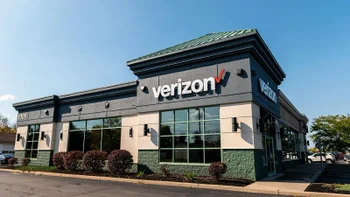
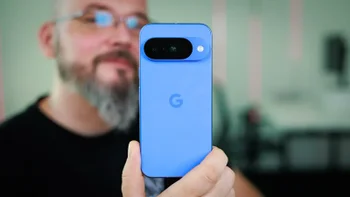
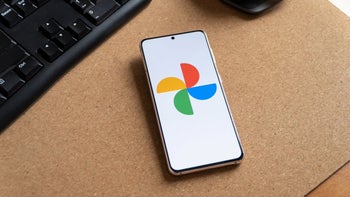


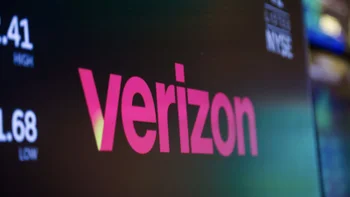
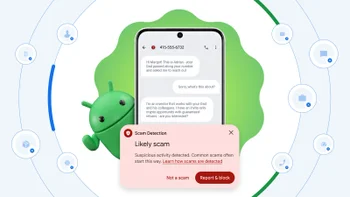


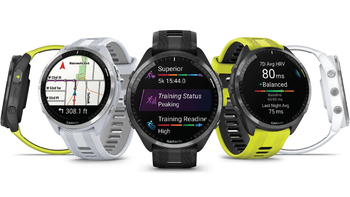
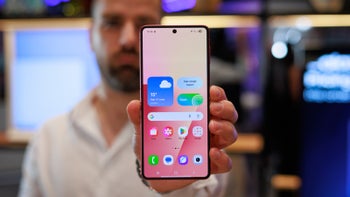

Things that are NOT allowed:
To help keep our community safe and free from spam, we apply temporary limits to newly created accounts: